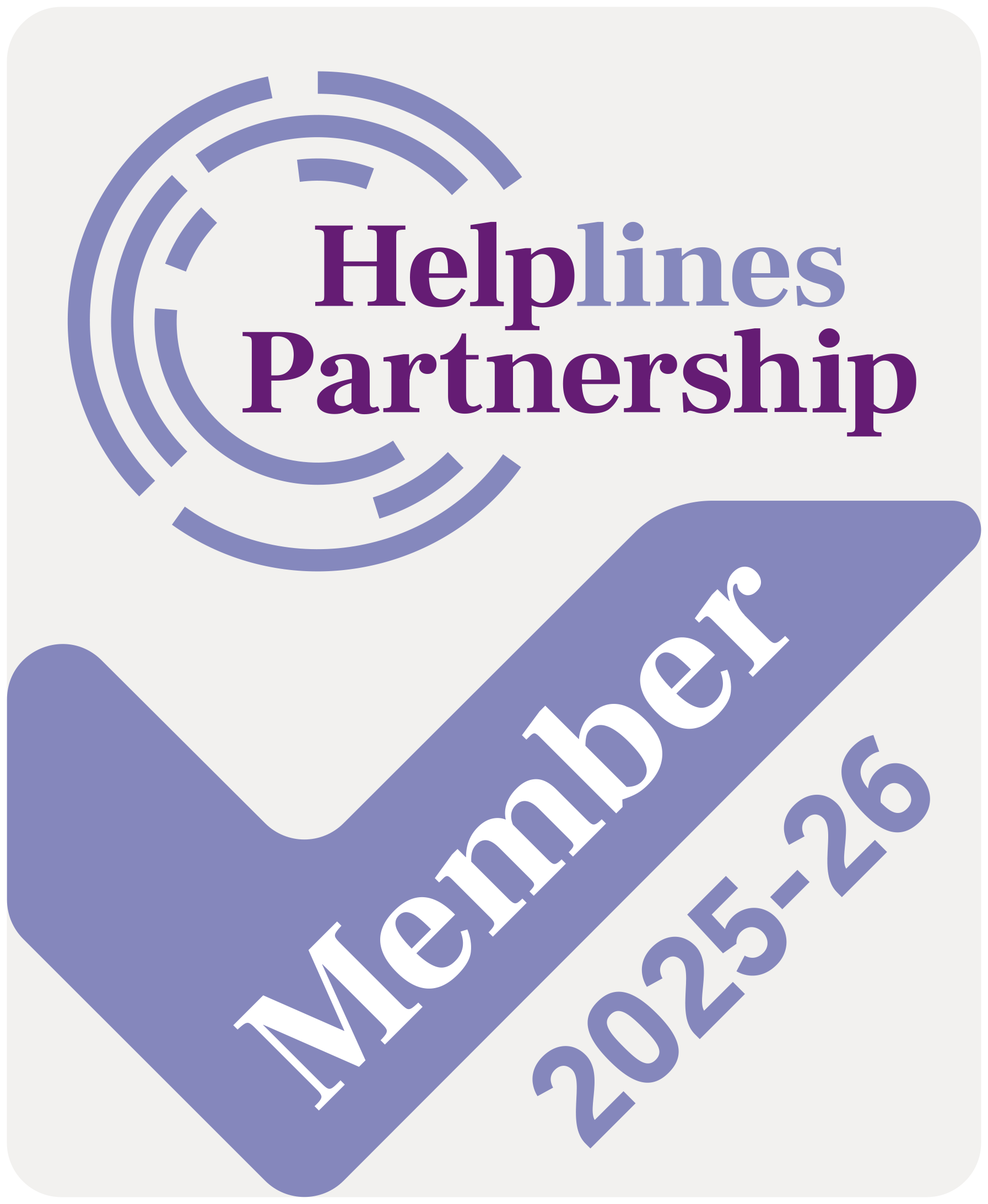If you have a question about genetics, genetic services or testing, you might find the answer in our list of frequently asked questions.
WHAT IS A GENETIC DISORDER?
A genetic disorder is a medical condition caused by an alteration/s to an individual’s genetic material. This can be an alteration to a gene or chromosome. Some genetic disorders run in families, others occur as a new event in an individual for the first time. There are thousands of different genetic conditions, examples include; Down syndrome, Cystic Fibrosis and Haemophilia.
HOW CAN I GET TO SEE A GENETIC SPECIALIST?
Your GP or the healthcare professional treating you will need to refer you to your local NHS Regional Genetics Centre or a private provider. You can find a list of NHS genetic centres on our website here: https://genepeople.org.uk/parentsofaffectedchildren/managinghealthcare/specialistgeneticcentres
If you are having difficulty getting referred, you could suggest your GP contacts your local genetic service to clarify whether a referral would be appropriate. Providing as much information as you can about the condition in your family and family history will help your doctor and the genetic centre to assess what is needed.
If you are pregnant and have, or have a family history of a genetic condition then you can be referred to a genetic centre by your GP or midwife on an urgent basis. This is because time can be an important consideration when making decisions about an ongoing pregnancy. If you would like to do this, it is best to request the referral as early in pregnancy as possible.
WHY DO PEOPLE ATTEND A GENETIC CLINIC?
Some medical conditions are due to alterations in a person’s genetic make-up. Genetic clinics diagnose these conditions, provide information and arrange genetic testing. They can explain how conditions are inherited, help draw up medical management plans and discuss family planning options.
There are many reasons why people attend a genetic clinic, some of these include:
- You have a child with physical and developmental difficulties that may be due to a genetic condition and you would like to see if a diagnosis can be made.
- You have a known genetic condition and would like specialist advice about this.
- You have a known genetic condition in your family and would like to understand the chance of you and/or your children developing this.
- You and your partner are planning to have children and one of you has a genetic condition in the family. You would like to understand the chance of your future children inheriting the condition, and your options for having children.
- You or your partner are pregnant and have a genetic condition in the family, you would like to know the chance of the pregnancy having the condition and any options for managing this.
- You or your partner have been told that a test in pregnancy has given an abnormal result which may be a genetic disorder. You would like to talk about what the result means and the options available to you.
- You and your partner are close blood relatives and are planning to start a family. You would like to know whether there might be any implications for your children.
HOW CAN I PREPARE FOR MY GENETIC APPOINTMENT?
There are several things it is helpful to consider and find out before your genetic appointment, these include:
- Thinking through your questions and concerns in advance and writing them down to take with you.
- Double checking which hospital your appointment will be at as genetic centres run clinics across different hospitals.
- If another member of your family has previously been seen in the genetic clinic, please let the clinic know their name and date of birth before your appointment. This will help them link the family information and will save time at your appointment.
- Gather as much information as you can about your family history, you will be asked for this in your appointment. Do not worry if the information available to you is limited. Clinics usually only ask about your family history as far back as grandparents.
- If your concern is about a genetic diagnosis affecting another member of the family who will not be present at the appointment, the clinic will need to get confirmation of the diagnosis. You may be asked to pass a consent form to your relative before your appointment.
- If the appointment is for a child who may have a genetic condition then taking along early photos of your child may help the doctor.
- If you need any additional assistance, such as an interpreter, it is very helpful to let the clinic know in advance. It is NHS policy not to use family members as interpreters.
WHAT DOES AN APPOINTMENT AT A GENETIC CLINIC INVOLVE?
Genetic clinics across the UK vary in the way they operate. Appointments usually last for approximately 45 minutes. You will be seen by a clinical geneticist (medical doctor specialising in genetic disorders) or a genetic counsellor (healthcare professional with expertise in genetics and counselling), or both, depending on the reason you have been referred. You will be given time to discuss your concerns and ask questions. Your medical and family history will be taken and your family tree drawn. If needed, you/your child will be examined by the doctor.
Where a diagnosis is known, you will be provided with information about the condition including an explanation of how it is inherited and what this may mean for you and other members of your family. Options around genetic testing and family planning will be discussed if appropriate. You will be supported with any decisions you may need to make and the emotional and social impacts of the genetic condition.
If genetic testing is available and you wish to go ahead with this, then you may have a blood sample taken. Not all genetic tests are carried out at the first appointment, for example, predictive genetic testing for Huntington’s Disease (HD) would not be carried out at your first meeting with the genetic team.
You are encouraged to bring a partner, close family member or friend with you. Everything should be explained to you in understandable terms and you should be given the contact details of the clinician you have seen.
WHAT WILL HAPPEN AFTER MY GENETIC APPOINTMENT?
Following your appointment it is likely you will be sent a letter summarising the information discussed. This will help you to remember everything and you can keep it for your own records. You might also want to show the written information to other members of your family.
You may only need to attend the clinic once or several appointments may be needed. You will be told at your appointment whether you need to be seen again. It is not always possible for all your questions to be answered at your first appointment.
If you had a blood sample taken for genetic testing, you should be told when to expect the results and agree a plan for how you will receive these. Some types of results are always given in person in the clinic, such as the result of a predictive genetic test for Huntington’s disease. Others may be given over the phone or by letter, such as a carrier test result for Cystic Fibrosis. The implications of what the result means, whether it is positive or negative, should be clearly explained to you.back to top…
WHAT DOES A GENETIC TEST INVOLVE?
A clinical genetic test carried out for individual or family health reasons is a medical test which looks for alterations in a person’s genetic make-up. Some genetic tests examine a person’s chromosomes (packages of genetic material) and others analyse genes (individual genetic instructions).
Genetic testing is most often carried out by taking a blood sample from the patient’s arm. The genetic material is extracted from blood cells in the laboratory and used in the testing process. Genetic tests can also sometimes be carried out on saliva samples and skin biopsies.
There are many reasons why someone might have a genetic test. It is important you have all the facts about the test and time to consider the implications before deciding whether or not to go ahead. It is not always necessary for a genetic test to be carried out to diagnose a genetic condition, or tell you about your genetic risk.
For more information about genetic tests see our section on genetic testing: https://genepeople.org.uk/aboutgeneticdisorders/genetictesting
HOW CAN I GET GENETIC TESTING?
The majority of genetic tests are carried out in NHS Regional Genetic Centres. You can ask your GP or hospital specialist for a referral to your local centre – see a list of centres on our website here: https://genepeople.org.uk/parentsofaffectedchildren/managinghealthcare/specialistgeneticcentres
Some genetic tests can be carried out by GPs and non-genetic hospital specialists, such as Paediatricians and Neurologists.
There are an increasing number of private companies and laboratories offering genetic testing. It is important to check the quality and standards of the tests and services offered by private providers as these do vary. For more information about this, see our section on genetic testing: https://genepeople.org.uk/aboutgeneticdisorders/genetictesting
Please note that Genetic Disorders UK does not carry out or arrange any genetic tests. We can help you find out what genetic testing is available, how to access tests and discuss the possible pros and cons of testing. If you have any questions about genetic testing please call our Helpline 0800 987 8987 or complete our contact form: https://genepeople.org.uk/contactusback to top…
WHAT IS GENETIC COUNSELLING?
Genetic counselling involves a healthcare professional talking to you about a genetic condition or possible genetic condition affecting you, your child or another member of your family. They can assess the genetic situation in your family by taking your medical and family history. They will usually draw your family tree to help with the assessment. They can explain what is known about the genetics of the condition and how it can be passed on in a family. Any options for genetic testing are also discussed and a test arranged if appropriate.
Another important aspect of genetic counselling is that it provides support with the emotional and family implications of a genetic disorder. This could be support with coping and adjustment to a diagnosis, or help with how to tell other members of the family about the possibility of the condition being passed on.
A range of healthcare professionals deliver genetic counselling, but it is most often provided by Clinical Geneticists (medical doctors specialising in genetic disorders) and Genetic Counsellors themselves. Genetic Counsellors are healthcare professionals with graduate training and experience in medical genetics and counselling skills. The majority of Genetic Counsellors in the UK work in regional NHS genetic centres.
Many people who have genetic counselling find they are reassured by the information provided. Others will receive difficult news and may have difficult decisions to make. These may include whether or not to have a particular test, or what to tell children or other relatives. Genetic Counsellors do not tell you what you should or should not do. They provide help and support by discussing all the options with you.
DO YOU STILL HAVE QUESTIONS?
If you have a question that is not answered above or you would like to discuss your personal situation in more detail, please contact our helpline on: 0800 987 8987 or complete our contact form which can be found here: https://genepeople.org.uk/contactus/back to top…
USEFUL LINKS
British Society for Genomic Medicine – Information for Patients and Families: http://www.bsgm.org.uk/information-education/for-patients/
Association for Genetic Nurses and Counsellors (AGNC) – Professional body representing Genetic Counsellors: http://www.agnc.org.uk/
Genetic Counsellor Registration Board (GCRB) – Regulatory body for the Genetic Counselling profession: http://www.gcrb.org.uk/
Antenatal Results and Choices (ARC) – Charity supporting people through antenatal tests and decision making: http://www.arc-uk.org/





